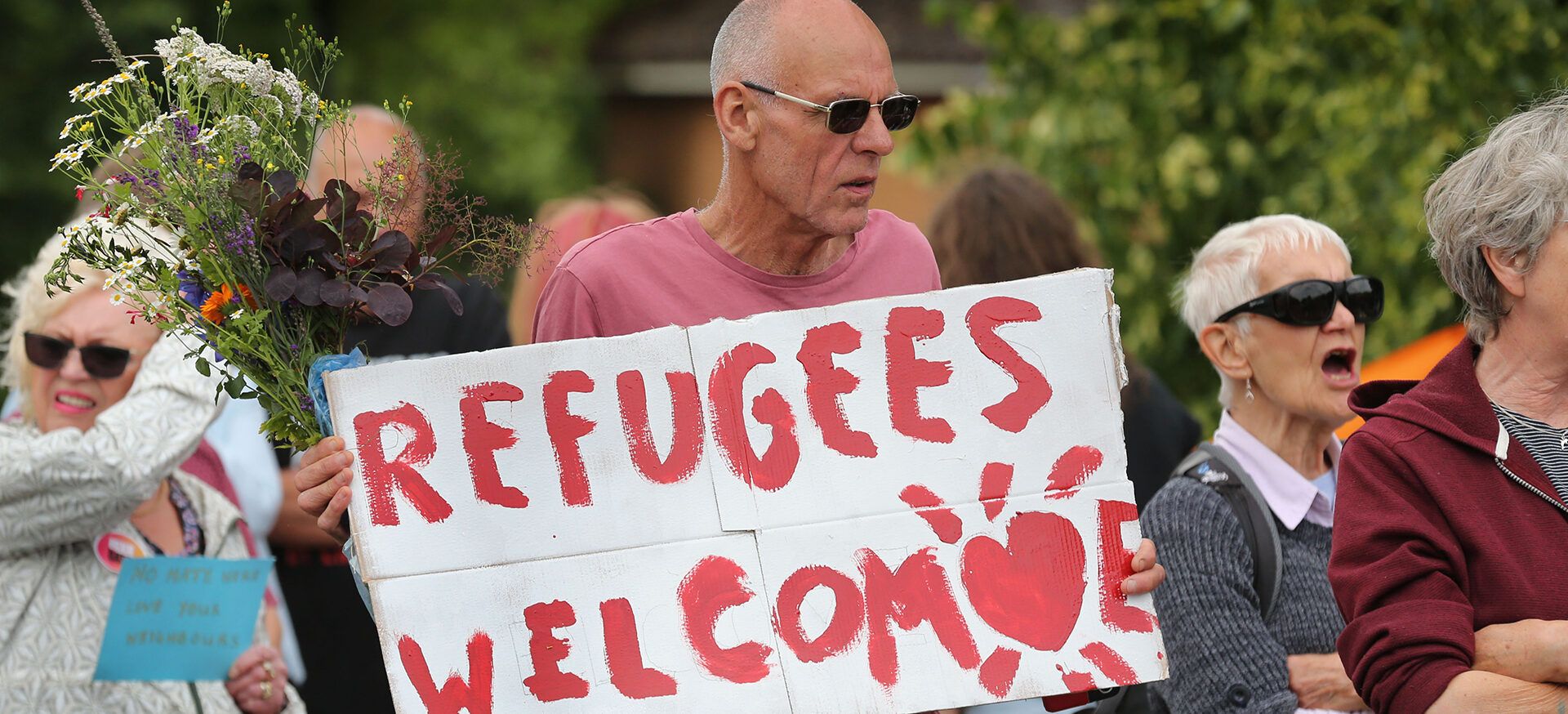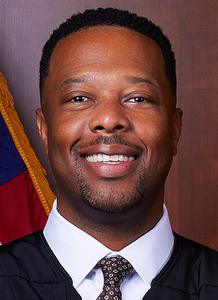The Trump administration has been ordered by a federal judge to admit about 12,000 refugees whose arrival plans were canceled when the president took office in January.
U.S. District Judge Jamal Whitehead in Seattle said his order includes refugees from countries listed on the administration’s travel ban. Trump indefinitely suspended the U.S. Refugee Admissions Program in a Jan. 20 executive order.
Jamal Whitehead
Whitehead appointed Magistrate Judge Michelle Peterson in Seattle to review all cases involving individuals and families whose planned arrivals were blocked by the presidential order. She was instructed to proceed in a way respectful of refugee rights and government authority.
Peterson also was told to review cases of refugees from nations covered under the travel ban — Afghanistan, Myanmar, Chad, the Republic of Congo, Equatorial Guinea, Eritrea, Haiti, Iran, Libya, Somalia, Sudan and Yemen.
“The court expects all parties to implement this framework in good faith, recognizing that real families remain in limbo while these legal processes unfold,” Whitehead wrote in the July 14 order. “Delays in implementation mean continued separation from safety for some of the world’s most vulnerable people.”
The decision followed the judge’s February determination that the administration had gone too far in ordering an indefinite suspension of the refugee program. However, the Ninth U.S. Circuit Court of Appeals in San Francisco limited the scope of his earlier ruling to refugees who applied for refugee status prior to Trump’s executive order.
Refugee advocates worry the administration will underestimate the number of refugee cases covered by Whitehead’s order and that the elimination of resettlement agency contracts will make it difficult to help newcomers acclimate in U.S. society.
Church World Service articulated that concern and insisted the administration be held responsible for carrying out the latest judicial directive: “Last week’s terminations that gutted key offices inside the State Department, including the Bureau of Population, Refugees and Migration and the Office of the Coordinator for Afghan Relocation Efforts, threaten to undermine the government’s ability to process the thousands of refugees already approved for resettlement who have been left in limbo by the administration’s refugee ban.”
The lead plaintiff in Pacito v. Trump, the lawsuit that led to Whitehead’s ruling, already has arrived in the United States, according to the International Refugee Assistance Project.
“Someone who has never been a refugee cannot understand that refugees do suffer.”
“Pacito” landed in North Carolina with his family July 11 as part of a small group pre-approved to resettle because their previously scheduled travel was within two weeks of Trump’s inauguration.
Before those arrivals, the administration was accepting refugees exclusively from South Africa, claiming they were endangered as white people in a majority-Black country.
Pacito said he and his family felt hopeless as the court battles raged and he and his family languished in dangerous conditions.
“Now that I’m here, I don’t even have the words to express it. Someone who has never been a refugee cannot understand that refugees do suffer; … they don’t even have basic things. But we pray and hope that this case will open the way for them and they get a chance to change their life.”
Melissa Keaney
Refugees still languishing in dangerous situations and longing to reunite with families in the U.S. should not be forgotten, said Melissa Keaney, senior supervising attorney with IRAP. “They went through lengthy and arduous processes to get approved for resettlement, only to see the rug pulled out from under them. We will continue to fight this unlawful refugee ban and hold the Trump administration accountable to following the court’s orders.”
Whitehead’s ruling must be viewed as nothing less than a measure that will save thousands of lives, said Erol Kekic, chief strategy officer at Church World Service.
“The administration must be held accountable for actually following through on the order — especially in light of the recent mass layoffs of key refugee-support staff necessary to ensure the timely and thorough processing of approved cases,” Kekic said. “As the judge noted, any delays in implementing this order means continued separation from safety for some of the world’s most vulnerable people.”


